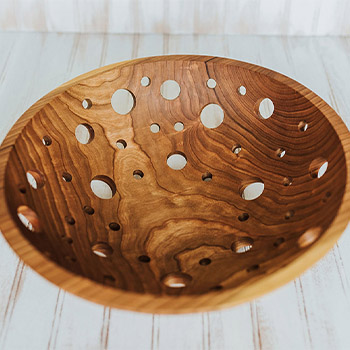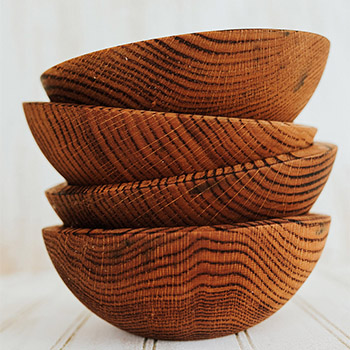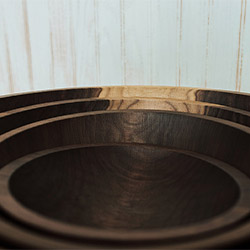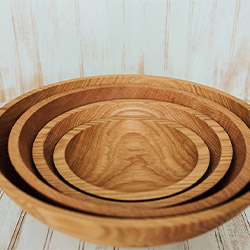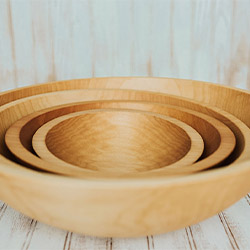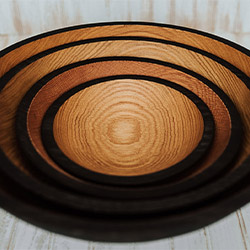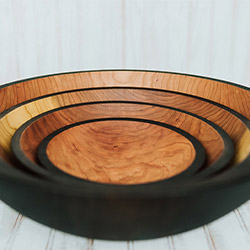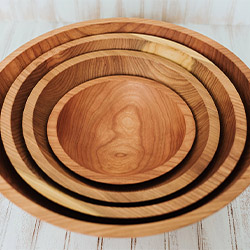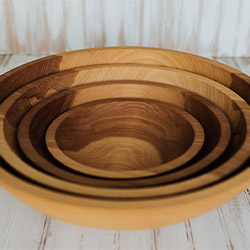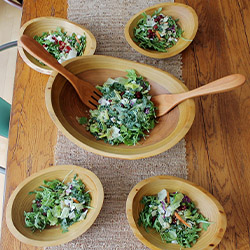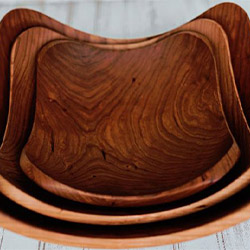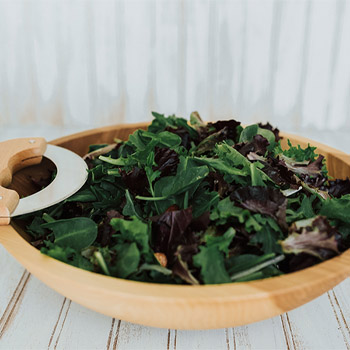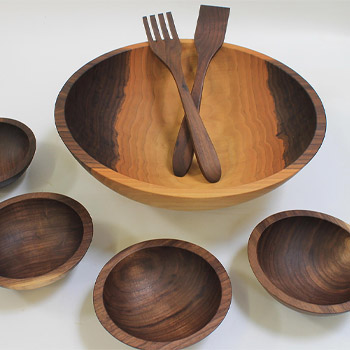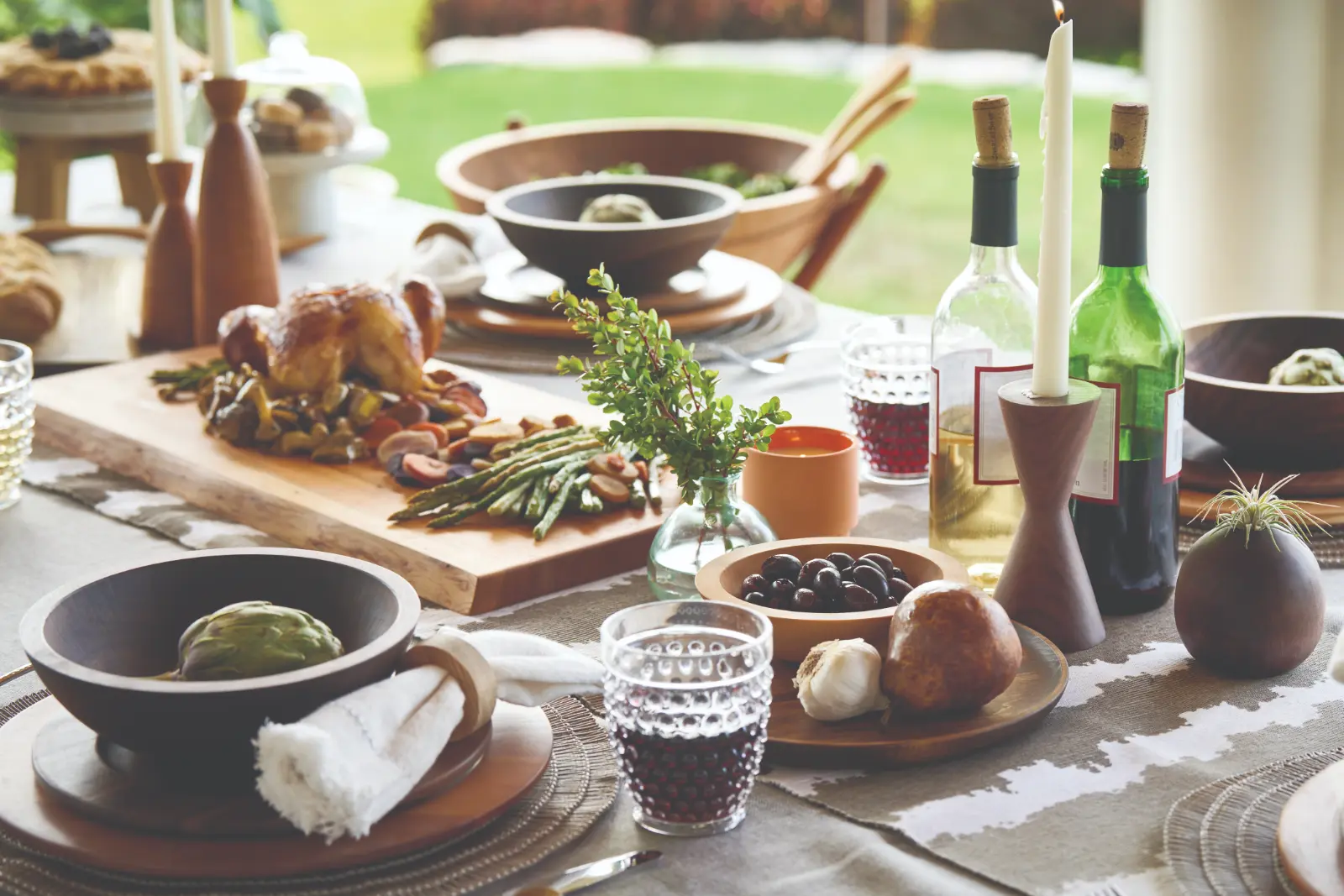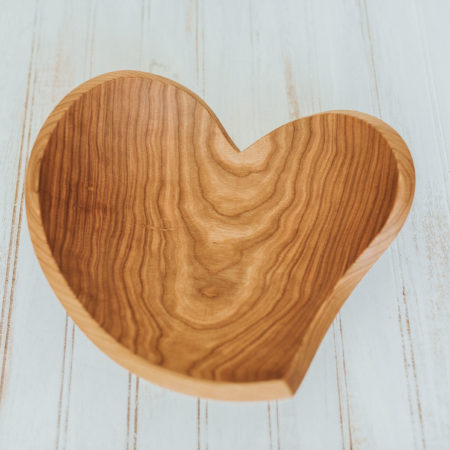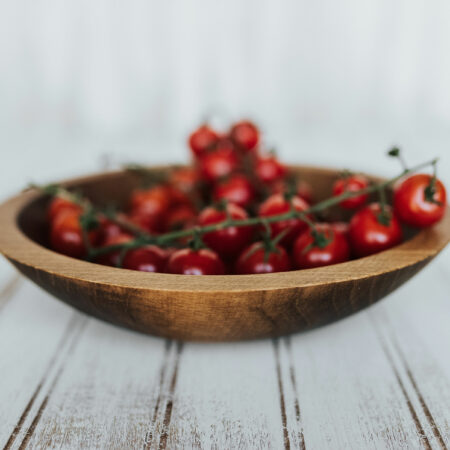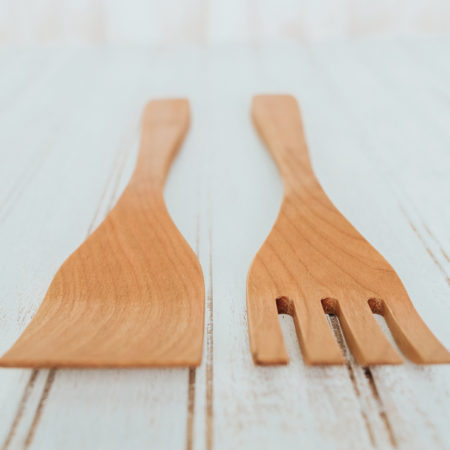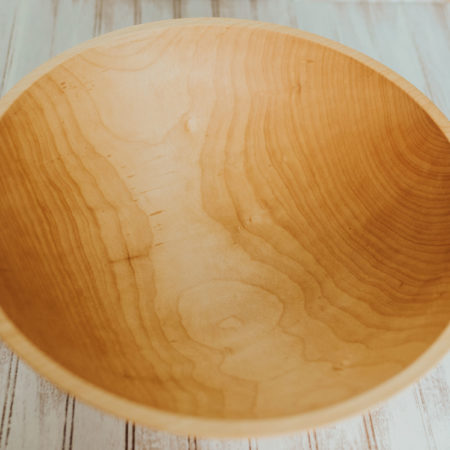When it comes to choosing the right wood for your kitchen utensils, you want to ensure both functionality and safety. You may be surprised to learn that not all woods are suitable for this purpose.
Some may impart unwanted flavors or harbor bacteria, while others are known for their durability and resistance to moisture. As you consider the best options for your culinary tools, it’s essential to understand the properties of different woods and how they can impact the quality of your cooking experience.
Key Takeaways
- Maple Wood: Versatile and popular choice with natural antibacterial properties for hygiene.
- Cherry Wood: Renowned for rich, reddish hues, durability, and adds sophistication to kitchen tools.
- Walnut Wood: Exceptional durability and resistance to moisture for long-lasting utensils.
- Beech Wood: Exceptional strength, color variations, and sustainable practicality for kitchen tools.
Maple
Maple is a versatile and popular choice for crafting kitchen utensils due to its dense and durable nature, making it an ideal option for food-safe wood products. The benefits of using maple for kitchen utensils are numerous. Firstly, maple wood is known for its strength and durability, which ensures that utensils crafted from it are long-lasting and resistant to wear and tear, even with daily use. This means that you can rely on maple utensils to withstand the rigors of everyday cooking.
In addition to its durability, maple wood possesses natural antibacterial properties, making it a hygienic choice for kitchen utensils. This feature is particularly important for food-safe wood products, as it helps prevent the growth of bacteria and ensures that your utensils remain safe for use with food. Furthermore, the smooth grain and fine texture of maple wood make it an excellent choice for crafting utensils that come into direct contact with food, as it’s less likely to harbor bacteria and food particles.
When compared to teak wood, another popular choice for kitchen utensils, maple stands out for its lighter weight, which can make it more comfortable to use for longer periods. Its lighter color also imparts a bright and clean look to the utensils, adding an aesthetic appeal to your kitchen tools. Overall, maple utensils offer a winning combination of durability, hygiene, and visual appeal, making them a sought-after choice for those who value quality and functionality in their kitchen.
Cherry
Crafted from a wood renowned for its rich, reddish hues and fine grain, cherry kitchen utensils offer a beautiful and durable option for food-safe wood products. Cherry wood, derived from the cherry tree, is known for its distinct reddish-brown color that darkens over time, adding warmth and elegance to any kitchen. Beyond its aesthetic appeal, cherry wood possesses a fine, straight grain that contributes to its strength and durability, making it an excellent choice for kitchen utensils. Let’s delve into the benefits and properties of cherry wood for kitchen utensils in more detail:
| Cherry Utensil Benefits |
Cherry Wood Properties |
| Beautiful reddish-brown color |
Rich, warm tones |
| Durable and long-lasting |
Fine, straight grain |
| Adds elegance to the kitchen |
Darkens over time |
| Resists warping and cracking |
High strength |
| Food-safe and non-toxic |
Smooth, even texture |
Cherry wood’s rich, warm tones bring a touch of sophistication to your kitchen, while its fine, straight grain ensures the utensils are durable and long-lasting. As cherry wood darkens over time, it develops a deep patina that adds to its allure. Moreover, its resistance to warping and cracking, combined with its smooth, even texture, makes it an ideal choice for crafting food-safe kitchen utensils. With cherry kitchen utensils, you can elevate your culinary experience with both beauty and functionality.
Walnut
When it comes to kitchen utensils, walnut is an excellent choice due to its remarkable durability. Not only is it resistant to water and heat, but it also possesses natural antibacterial properties, making it safe for food contact.
To maintain its integrity, it’s important to oil walnut utensils regularly with food-safe mineral oil and avoid exposing them to extreme temperature changes.
Durability of Walnut
Walnut wood is renowned for its exceptional durability, making it an excellent choice for kitchen utensils that require longevity and resilience.
When considering the durability of Walnut for kitchen utensils, several key points should be noted:
- Hardness: Walnut is a hardwood with a medium level of hardness, making it strong and resistant to wear and tear from regular use.
- Resistance to Moisture: Its natural resistance to moisture and warping makes Walnut an ideal choice for kitchen utensils that come into contact with water and other liquids.
- Longevity: With proper care and maintenance, Walnut utensils can last for many years, offering a sustainable and environmentally friendly option for kitchen tools.
Safety for Food
To ensure the safety of food, it is important to consider the suitability of Walnut wood for kitchen utensils. When it comes to food grade and safety standards, Walnut wood is a popular choice due to its low toxicity and minimal health concerns. The tight grain of Walnut makes it less likely to harbor bacteria, providing a safe surface for food preparation. Here’s a breakdown of why Walnut is a great choice for kitchen utensils:
| Properties |
Details |
Benefits |
| Low Toxicity |
Minimal health concerns |
Safe for food preparation |
| Tight Grain |
Less likely to harbor bacteria |
Hygienic for kitchen use |
| Durable |
Long-lasting and reliable |
Ideal for kitchen utensils |
Maintenance Tips
To maintain the quality and longevity of your Walnut kitchen utensils, it’s crucial to follow proper care and maintenance guidelines. Here are some essential tips to ensure your Walnut utensils remain in excellent condition:
- Cleaning Techniques: Wash your walnut utensils by hand with mild dish soap and warm water. Avoid soaking them for extended periods or putting them in the dishwasher, as this can cause the wood to warp and crack.
- Preventing Warping: After washing, thoroughly dry the utensils with a towel and then let them air dry completely in a vertical position. Store them in a well-ventilated area away from direct heat sources to prevent warping and maintain their shape.
- Applying Oil: Periodically apply food-grade mineral oil to the utensils to restore their luster and prevent the wood from drying out and cracking.
Beech
Beechwood is known for its tight grain and smooth texture, making it an excellent choice for kitchen utensils.
Its natural hardness and durability make beech utensils resistant to wear and tear, ensuring a longer lifespan for your kitchen tools.
Proper care and maintenance of beech utensils will help retain their quality and appearance, ensuring they remain safe for use in food preparation.
Beech Wood Properties
With its fine, even grain and natural durability, beech wood is prized for its suitability in crafting high-quality kitchen utensils.
Beech Wood Properties
- Beech Wood Strength: Beech wood is renowned for its exceptional strength, making it an ideal choice for kitchen utensils that require resilience and longevity. Its robust nature ensures that utensils crafted from beechwood can withstand the rigors of daily use without compromising performance.
- Beech Wood Color Variations: Beechwood exhibits a wide range of color variations, from pale cream to light brown, adding a touch of natural beauty to kitchen utensils. This variability allows for a diverse selection of aesthetically pleasing utensils, catering to individual preferences and kitchen décor styles.
- Natural Durability: Beech wood’s inherent durability makes it resistant to wear and tear, ensuring that utensils crafted from this wood remain robust and reliable over time. This durability contributes to the longevity of kitchen utensils, making them a sustainable and practical choice for any kitchen.
Beech wood’s strength, color variations, and natural durability make it an excellent choice for crafting high-quality kitchen utensils that not only perform well but also add a touch of natural elegance to your culinary space.
Beech Utensil Benefits
Crafted from beechwood, kitchen utensils offer unparalleled strength and natural beauty, making them a superior choice for culinary tasks. Beechwood is known for its durability, which ensures that utensils made from it are long-lasting and resistant to wear and tear.
The fine, even grain of beech wood also makes it ideal for carving intricate utensil designs, providing a smooth and comfortable grip for effortless food preparation. Beech utensils are perfect for stirring, flipping, and serving, as the wood doesn’t scratch non-stick cookware or delicate surfaces.
Additionally, beech wood has natural antibacterial properties, making it a hygienic choice for kitchen utensils. Whether you’re a professional chef or a home cook, beech utensils are versatile and reliable and add a touch of elegance to your kitchen tools.
Care and Maintenance
How should you properly care for and maintain your beech wood kitchen utensils to ensure their longevity and performance?
- Cleaning methods and sterilization: After each use, hand wash the utensils with mild dish soap and warm water. Avoid soaking them and never put them in the dishwasher, as excessive moisture can cause warping and cracking. To sterilize, occasionally boil the utensils for a few minutes, then allow them to air dry completely.
- Oil treatment and seasoning techniques: Regularly apply food-grade mineral oil to the utensils to prevent them from drying out and cracking. Rub the oil in the direction of the wood grain and let it sit overnight. Additionally, season the utensils with beeswax or a wood conditioner to maintain their natural luster and resilience.
Proper care and maintenance will ensure that your beech wood kitchen utensils remain in excellent condition for years to come.
Teak
Teak is renowned for its durability and natural resistance to moisture, making it an excellent choice for kitchen utensils. When it comes to teak wood benefits, its inherent strength and water-resistant properties make it ideal for withstanding the rigors of everyday kitchen use. Additionally, teak’s natural oils provide a beautiful finish and protect the wood from moisture and food particles, making it a hygienic option for kitchen utensils.
| Teak Wood Benefits |
Teak Wood Care |
| Durable and strong |
Clean with mild soap |
| Natural resistance to moisture |
Avoid soaking |
| Hygienic and easy to maintain |
Dry thoroughly after washing |
| Beautiful natural finish |
Treat with mineral oil as needed |
To ensure your teak kitchen utensils remain in top condition, it’s essential to follow proper teak wood care. Clean them with mild soap and warm water, and avoid soaking them for prolonged periods. After washing, dry the utensils thoroughly to prevent any moisture-related issues. Additionally, treat the utensils with mineral oil as needed to maintain the beautiful natural finish and nourish the wood. By following these care tips, you can ensure the longevity and quality of your teak kitchen utensils, providing a sense of belonging and pride in your well-maintained kitchen essentials.
Mahogany
When considering mahogany for your kitchen utensils, it’s important to note its exceptional durability and natural resistance to moisture and decay.
To maintain its beauty and functionality, be sure to oil and condition your mahogany utensils regularly to prevent cracking and warping.
Durability of Mahogany
Mahogany is renowned for its exceptional durability and resistance to wear, making it an excellent choice for kitchen utensils requiring longevity and reliability. When considering the durability of mahogany for kitchen utensils, it’s essential to understand the factors that contribute to its long-lasting nature:
- Density: Mahogany’s high density makes it resistant to dents and scratches, ensuring that kitchen utensils crafted from this wood maintain their integrity even with regular use.
- Natural Oils: The natural oils present in mahogany wood contribute to its durability by providing a level of water resistance, preventing warping and decay over time.
- Sustainability: Mahogany is a sustainable option for kitchen utensils, as it’s responsibly sourced and replenished, aligning with environmentally conscious choices.
These factors combine to make mahogany a durable and sustainable choice for high-quality kitchen utensils.
Maintenance Tips for Mahogany
With its exceptional durability and resistance to wear, mahogany requires specific maintenance to ensure its longevity and reliability in kitchen utensils. When caring for mahogany utensils, it’s essential to avoid soaking them in water or exposing them to extreme temperature changes, as this can cause warping or cracking.
Instead, hand wash the utensils with mild soap and warm water, then promptly dry them with a soft cloth. To maintain the natural luster of mahogany, apply a food-safe wood polish using a soft, lint-free cloth following the wood grain. This will help protect the wood from moisture and enhance its beauty.
Additionally, it’s advisable to store mahogany utensils in a dry, well-ventilated area away from direct sunlight to prevent discoloration. By following these wood polishing techniques and mahogany utensil care, you can ensure that your kitchen utensils remain in prime condition for years to come.
Birch
Birchwood is prized for its light color, smooth grain, and durability, making it an excellent choice for crafting food-safe kitchen utensils. When properly cared for, birch utensils can last for years, providing a reliable and attractive option for your culinary needs.
Here’s what you need to know about birch wood for kitchen utensils:
- Birch Wood Properties:
Birchwood is known for its fine and uniform texture, which allows for a smooth finish that’s gentle on your cookware. It’s also a durable hardwood, able to withstand the rigors of everyday use in the kitchen. Its light color adds a touch of natural elegance to your utensils, making them a visually appealing addition to your kitchen.
- Birch Utensil Care:
To maintain the beauty and functionality of birch utensils, it’s important to wash them by hand with mild soap and warm water. Avoid soaking them for extended periods and never put them in the dishwasher, as excessive moisture can cause warping and splitting. Periodically conditioning the wood with mineral oil will help preserve its luster and prevent drying or cracking.
- Versatility:
Birchwood is versatile and can be crafted into a variety of kitchen utensils, including spoons, spatulas, and salad tongs. Its smooth surface makes it ideal for food preparation, as it won’t easily harbor bacteria or impart unwanted flavors to your dishes.
Olive
Olive wood, renowned for its rich, intricate grain and natural antimicrobial properties, is a versatile and desirable choice for crafting food-safe kitchen utensils. The benefits of olive wood extend beyond its aesthetic appeal. Its tight grain pattern makes it resistant to absorbing liquids and odors, reducing the likelihood of bacterial growth and making it an excellent option for food-related applications. When properly cared for, olive wood utensils can last a lifetime, becoming an integral part of your culinary experiences.
To ensure the longevity of your olive wood utensils, it’s essential to follow specific care instructions. Hand wash them with mild soap and warm water, avoiding prolonged soaking. After washing, towel dry them immediately and allow them to air dry completely before storage. Regularly apply a food-safe mineral oil to nourish the wood and maintain its natural luster. Additionally, store the utensils in a well-ventilated area away from direct heat sources to prevent warping or cracking.
Embracing the use of olive wood utensils in your kitchen not only adds a touch of timeless elegance but also aligns with a tradition of craftsmanship and functionality. Its durability and unique grain patterns make each piece one-of-a-kind, creating a sense of belonging and connection to the culinary heritage. By incorporating olive wood utensils into your cooking routine, you can elevate your kitchen experience while enjoying the numerous benefits this exceptional wood has to offer.
Bamboo
Renowned for its sustainability and durability, bamboo emerges as a compelling alternative for crafting food-safe kitchen utensils, offering a unique combination of strength and natural antimicrobial properties. When it comes to bamboo utensil designs, this versatile material can be shaped into a wide range of kitchen tools, including spoons, spatulas, tongs, and even cutting boards.
Here’s why bamboo is an excellent choice for your culinary needs:
- Durability: Bamboo utensils are highly durable and resistant to cracking, warping, and staining, making them ideal for everyday use in the kitchen. The sturdy nature of bamboo ensures that utensils crafted from this material can withstand the rigors of cooking, stirring, and serving without wearing down easily.
- Natural Antimicrobial Properties: Bamboo possesses natural antimicrobial properties, which means that it inhibits the growth of bacteria and other microbes. This makes bamboo utensils naturally hygienic and safe for food preparation, giving you peace of mind while you cook.
- Sustainable Bamboo Sourcing: Bamboo is a highly sustainable material known for its rapid growth and minimal environmental impact. When choosing bamboo utensils, look for products made from sustainably sourced bamboo to support eco-friendly practices and responsible forestry management.
Incorporating bamboo utensils into your kitchen not only brings a touch of natural elegance to your culinary space but also aligns with sustainable living practices. Whether you’re a seasoned chef or a cooking enthusiast, bamboo utensils offer a perfect blend of functionality, style, and eco-consciousness.
Acacia
Acacia wood, known for its rich color and distinctive grain patterns, is highly sought after for crafting food-safe kitchen utensils due to its exceptional durability and natural resistance to moisture and stains. Acacia’s durability makes it an excellent choice for utensils that are constantly exposed to water, heat, and food acids. The strong and dense nature of acacia wood allows it to withstand the rigors of everyday kitchen use, ensuring that your utensils remain in top-notch condition for years to come.
To maintain the durability and beauty of acacia utensils, it’s essential to follow proper maintenance techniques. Regularly oiling the wood with food-safe mineral oil helps to nourish the wood, prevent it from drying out or cracking, and maintain its natural luster. Additionally, hand washing the utensils with mild soap and warm water, followed by thorough drying, is crucial to prevent warping or discoloration. It’s important to note that acacia wood isn’t suitable for dishwasher use or prolonged soaking, as excessive moisture can compromise its integrity over time.
Review
So there you have it, the top 12 food-safe woods for kitchen utensils.
It’s important to choose the right wood for your utensils to ensure they’re safe for food preparation.
Each of these woods has been carefully selected for their durability, non-toxic properties, and ability to withstand the rigors of everyday use in the kitchen.
By choosing one of these woods for your utensils, you can ensure that you’re using the best and safest materials for your culinary needs.

